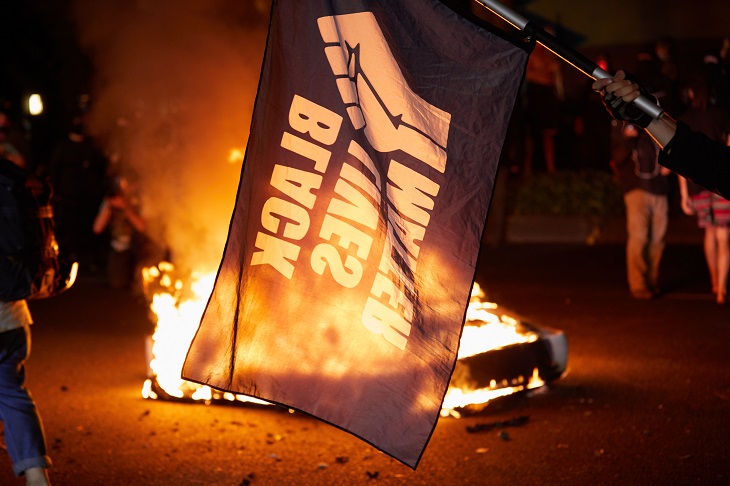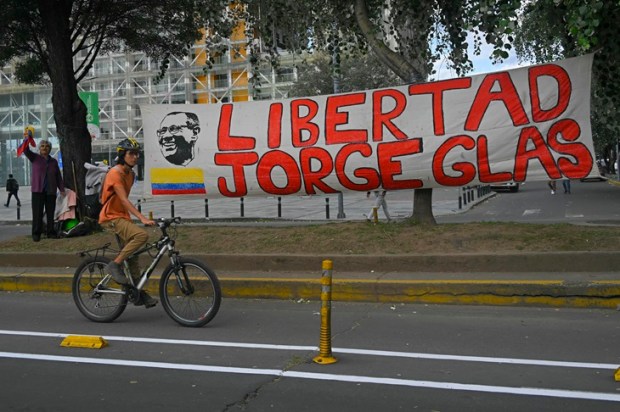The recent outpouring of rancour and bilious accusation at the death of Queen Elizabeth II has brought out predictable justifications for incivility in the name of social justice: ‘It’s okay when we do it; if you criticise us, you’re an oppressor too.’
Last Thursday, a Nigerian-born university professor at Carnegie Mellon tweeted her hope that Queen Elizabeth’s pain on her deathbed would be ‘excruciating’, excusing her crudity by referring to the Queen as the ‘chief monarch [sic] of a thieving, raping, and genocidal empire’.
Professor Uju Anya is not a historian – she has a PhD in the academically unserious discipline of second-language theory while also exploring ‘applied linguistics as a practice of social justice and translanguaging in world language pedagogy’. It is highly unlikely that she could go toe-to-toe with a genuine historian on the facts of the British Empire’s alleged atrocities.
Throw-away denunciations (not of the Mongol and Ottoman empires, only the British) are common currency on Twitter, and within most university classrooms today. Nobody would have cared if Anya had denounced the British Empire; what raised eyebrows was the gratuitous nastiness of her wish for the Queen to die an agonising death.
When her tweet provoked criticism and was ultimately deleted by Twitter, Anya argued that the Queen had ‘supervised a government that sponsored the genocide that massacred and displaced half my family’ (in reference to Britain’s alleged role in supplying arms to the Nigerian government during the country’s three-year civil war in the late 1960s) and engaged in oft-obscene exchanges with her detractors.
She told NBC News in interview:
‘I take deep offence at the notion that the oppressed and survivors of violence have to somehow be deferential or respectful when their oppressors die.’
No one ever said that Anya had to be deferential… But a reasonable person might have expected some restraint considering Nigerians, both during the civil war and generally in the more than 60 years since the country was granted independence, have done a good job of massacring, displacing, and reducing the life possibilities of other Nigerians.
As a result, there has been a mass exodus from Nigeria by individuals like Anya, many of whom have fled to Great Britain as well as to other English-speaking countries where they have been able to live in security and plenty unimaginable to the vast majority of their former countrymen.
If the English-speaking empire is so evil, why choose to continue living in it?
The professor was not without support. MSNBC opinion columnist Zeeshan Aleem defended her statements as ‘undeniably stemming from a place of personal hurt and political opposition to the imperial history and legacy of the British monarchy’.
Oni Blackstock, whose Twitter bio identifies her as an MD, tweeted:
‘“Speak no ill of the dead” is a weapon that’s levelled against the oppressed to silence them, to lionise oppressors, and to sanitise their history.’
She went on to call Anya ‘a truth-teller’ then added, ‘And we know what happens when people speak truth to power.’
Contrary to their stated fears, nothing is happening in retribution for Anya’s claimed ‘truth-telling’. Quite the opposite. Mellon has come under fire from progressive journalists for distancing itself from her vulgar statement.
Moreover, no one is preventing criticism of the dead or the living. No one is suggesting that a postcolonial critic cannot make arguments about the alleged harm done by the British Empire. Anya is perfectly free to analyse the perfidy of the British in Nigeria’s past or to critically evaluate Queen Elizabeth’s role in Nigerian decolonisation.
Mona Eltahawy, an Egyptian-American radical feminist, alleged that rudeness is a political strategy by which formerly colonised and oppressed peoples resist the ‘white, Christian values’ that have allegedly been violently imposed in order to pacify them. Practising ‘radical rudeness’, according to Eltahawy, is a liberatory strategy of anti-imperialism.
Pursuing the same theme, Valeska Griswold tweeted:
‘The notion of radical rudeness is an excellent framework to analyse the complaints of alt-right movements against POC and “the libs”. It helps to have a name for the things that form organically in subaltern and oppressed communities to deal with their marginalisation.’
Such puerile theorising has a long and depressing history in academic thought, but anyone interested in a concise statement of one of its points of origin should read political theorist Herbert Marcuse’s 1965 essay Repressive Tolerance.
In his exposition in favour of intolerance and aggression by the oppressed, Marcuse, pre-eminent intellectual and godfather of the New Left, alleges that the oppressed can and must live by rules different from those that bind others. In fact, he asserted it was inhumane to remain calm when confronting the actions and discourse of alleged oppressors.
Tolerant speech, according to Marcuse, ‘offends against humanity and truth by being calm where one should be enraged, by refraining from accusation where accusation is in the facts themselves’.
The statement is on its face nonsensical. If ‘accusation is in the facts themselves’ then why would more accusation be necessary? Is it not more useful to be calm in one’s rage, if rage is called for, than to be uncontrolled and frenzied?
Marcuse believed that to maintain self-control was in some way to allow oppressors to get away with their evil and to enforce cognitive and psycho-social bondage on the oppressed: ‘The tolerance expressed in such impartiality serves to minimise or even absolve prevailing intolerance and suppression.’
As the inheritor of a long tradition that celebrated righteous rage, Marcuse suggested that a calm, fact-based approach to civic engagement was itself a form of capitulation to one’s enemy and a betrayal of victims. A true champion of the oppressed, Marcuse suggested, would not hesitate to dehumanise the oppressor.
There are striking parallels between Marcuse’s claims and those of Anya and her supporters who advocate ‘radical rudeness’.
In Repressive Tolerance, Marcuse appeared to condone violence in principle, distinguishing between what he called ‘revolutionary violence’, which he cautiously approved as a necessary measure by the oppressed to end injustice, and ‘reactionary violence’, which he condemned as a means to maintain oppression.
English-speaking countries have been relatively good places to live for a long time precisely because, amongst other reasons, of its ‘white, Christian culture’ which emphasised non-violence and placed a high value on civility, self-restraint, and calm rationality. It did so not only out of Christian conviction, but also in the recognition that visionary violence always exceeds its aim, harming the innocent and the powerless.
People schooled in little other than post-colonial resentment and lavishly rewarded for toxic ranting, evidently do not care about the civil order they threaten. Their glib, destructive posturing exposes the rot at the heart of academic social justice ideology.
This is an extract. To read the full article, visit Janice Fiamengo’s blog.
Got something to add? Join the discussion and comment below.
Get 10 issues for just $10
Subscribe to The Spectator Australia today for the next 10 magazine issues, plus full online access, for just $10.


























Comments
Don't miss out
Join the conversation with other Spectator Australia readers. Subscribe to leave a comment.
SUBSCRIBEAlready a subscriber? Log in